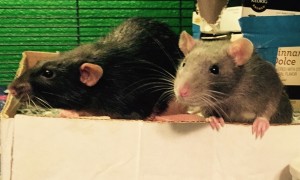A friend of mine recently forwarded me this article: The Likely Cause of Addiction Has Been Discovered, and It Is Not What You Think about this book: ‘Chasing The Scream: The First and Last Days of the War on Drugs’
I read the article, and watched the TedTalk, and have yet to read the book (currently on request at the library). The article is about the causes of addiction and quotes a study called Rat Park conducted in the 1970s by Bruce Alexander PhD. (See the full study here). With out reproducing the whole article, essentially Dr. Alexander found out that rats addicted to cocaine or heroin living in a bare cage that were then transported to a cage with lots of activities, exercise, other rats to socialize with, good rat chow, basically a “Rat Park,” abandoned their addiction. Fundamentally, “he argues, addiction is an adaptation. It’s not you. It’s your cage.”

 and two because I have been experiencing some lessons around follow-through. These lessons highlighted for me both how important follow-through can be, as well as the difficulties around “follow-through.”
and two because I have been experiencing some lessons around follow-through. These lessons highlighted for me both how important follow-through can be, as well as the difficulties around “follow-through.” I am in the business of change and that is the primary reason people come to see me, so why do people cringe at the word “change?” Ultimately because change or changing can feel like a loss of control, and frankly we don’t like to admit the following; we want control of our lives and seek control in a multitude of ways. We create illusions and expectations of how things “should be” and like to think we have much more say in matters than we really do. So when things change it is a big reminder that we don’t have that much control.
I am in the business of change and that is the primary reason people come to see me, so why do people cringe at the word “change?” Ultimately because change or changing can feel like a loss of control, and frankly we don’t like to admit the following; we want control of our lives and seek control in a multitude of ways. We create illusions and expectations of how things “should be” and like to think we have much more say in matters than we really do. So when things change it is a big reminder that we don’t have that much control. If you aren’t familiar with the inner “Drill Sergeant” well it goes by other names too: gremlin, inner critic, saboteur, negative self talk. Most often this inner “Drill sergeant” is a negative inner voice that prevents us from being as successful and satisfied as we want to be in life. This voice is sometimes the voice of fear, doubt, procrastination, a symbol of eroded self-esteem, what ever it is or stems from it represents some form of negative self-talk.
If you aren’t familiar with the inner “Drill Sergeant” well it goes by other names too: gremlin, inner critic, saboteur, negative self talk. Most often this inner “Drill sergeant” is a negative inner voice that prevents us from being as successful and satisfied as we want to be in life. This voice is sometimes the voice of fear, doubt, procrastination, a symbol of eroded self-esteem, what ever it is or stems from it represents some form of negative self-talk.